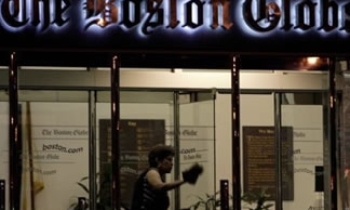NEW YORK (MarketWatch) - Bob Woodward's startling true confession will have a far-reaching impact on more than the trial of Lewis Libby, the top aide to Vice President Dick Cheney who has been indicted for perjury in connection with the CIA leak case.
I suspect that the Woodward affair will change a time-honored tradition in my profession. Now, journalists/would-be authors are likely to receive more scrutiny from their bosses and it'll be harder for them to conceal sensitive information from their employers.
On Wednesday, Woodward, a Washington Post assistant managing editor and uber-bestselling author, stunned the already-shellshocked media universe. He admitted concealing information about the case from his boss at the Washington Post relating to journalism's cause celebre, the Valerie Plame controversy.
Just when you thought that journalists couldn't bring any more embarrassments to the craft, Woodward says, Gotcha! He now takes his place along side the others who have caused members of the profession to be mortified and, at the very least, apologize to the public about our ethical lapses.
It suddenly seemed that the hero of Watergate -- the investigative reporter who had so benefited from keeping secrets for many years -- had finally been trapped by the game.
At the same time, his declaration has essentially blown the lid off one of journalism's dirty little secrets. A reporter can withhold information from his boss (and the employer's audience) in the self-interest of making a lot of money by writing a book.
And still ...Woodward's employer, the Post, should have no complaints about the cozy relationship, either. The paper has basked in the reflected glory of Woodward's fame for decades. Obviously, it has an incentive for him to be as well known as possible -- for the sake of its financial gain.
Speaking of a double standard, it might seem odd that Judy Miller, a Pulitzer-Prize winning journalist, gets kicked out of the New York Times while Woodward gets his wrist slapped at its main competitor.
Pandora's Box
This flap will spark many questions.
The big one is: If you're a journalist, is your first obligation to an employer, where you made your reputation, or to a book publisher, who's paying you a huge chunk of change for the right to be the first body to publish your confidential reporting?
The controversy won't end there, of course. The Libby case is too hot and the light from it is too bright. Woodward's revelation should trigger a debate that will rage long after Scooter Libby's legal fate is sealed: Who owns a reporter's findings when he or she is working on a book project?
It's a maddening conflict with no hard and fast answer. The kicker, of course, is that this CIA-leak case has become so heavily politicized that it's even more difficult -- if not outright impossible -- to separate right from wrong.
It boils down to this scenario: Say, for instance, I am a staff writer at a media company and I get a contract from a publisher to write a book about the U.S. energy policy, and my editor grants me an unpaid book leave. In the course of my reporting for the book, I find out that the oil companies have been deliberately manipulating gasoline prices at the pump -- a bombshell that would ordinarily be worthy of a spot on page one.
In this case, my conundrum is heightened because I had made an agreement with my boss that my publisher would have first dibs on my reporting for the book project. Along the way, I'd agreed not to give my findings or an interview to another Web site until after my employer published the news.
Woodward has found himself in that position on many occasions over the years. He made his name when he and Washington Post colleague Carl Bernstein broke the Watergate story from 1972 to President Richard Nixon's resignation two years later.
Woodward parlayed his notoriety to go on and write best-sellers on subjects ranging as widely as Watergate and John Belushi to the Supreme Court and the plan for the invasion of Iraq.
Having it both ways
Throughout his career as a celebrity journalist/author, Woodward has always been able to have it both ways. That is, he has been free to keep the juiciest stuff to himself and his book publisher before letting the Post publish his findings as he jets off on a publicity tour that's guaranteed to goose sales.
That way, Woodward gets the maximum publicity bang. Nice work if you can get it.
Woodward apologized for his indiscretion. Post Editor Leonard Downie gritted his teeth, squared his jaw and concluded, sensibly, that he had no choice but to accept it.
Woodward has always had it both ways. Chances are, he always will.
That's one of the laws of capitalism. There are two sets of rules, one for the working stiffs and another for the superstars who help the corporation make piles of money.
It's just as unlikely that the Washington Post would punish Woodward as the San Francisco Giants suspending Barry Bonds, the most consistent drawing card in baseball nowadays. The Giants would rather look the other way, even as Bonds was accused of taking steroids and embarrassed the club.
Journalism is not that much different than the entertainment industry in this respect. A bottom line-driven company isn't going to cut off its nose to spite its face. If the Post were to cut Woodward loose, he would undoubtedly begin fielding offers before the ink on the Post's press release was dry -- just as a free agent named Bonds could easily find a new home if the suddenly image-conscious Giants fired him.
Woodward looks underhanded here. His bosses can howl that he should have told them earlier what he knew. No argument here.
But shed no tears for the Washington Post. Nobody at the company should feel like an injured innocent in this mess.
The Post, after all, created the system and looked the other way all these years, despite what now seems to be a blatant double standard.
Like its star reporter, the Washington Post believed it could have it both ways, too.
Not quite









